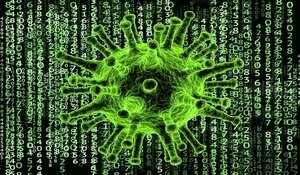Post-COVID Scenarios – and What Data & Tech Choices Can Steer Us to a Better Future?

Speakers: Bray, D. (The Atlantic Council’s GeoTech Center); Burrows, M. (Strategic Foresight Initiative); Chander, D. (The Atlantic Council’s GeoTech Center); Matheny, J. (Center for Security and Emerging Technology)
Date: 10 September 2020
Speaker Session Summary
SMA hosted a panel discussion as a part of its SMA UK MoD Speaker Series. The panelists included Dr. David Bray, Dr. Matthew Burrows, Dr. Divya Chander, and Dr. Jason Matheny (All from The Atlantic Council’s GeoTech Center, Strategic Foresight Initiative, and Center for Security and Emerging Technology).
Dr. Burrows kicked off the panel by discussing three potential post-COVID scenarios developed at the Atlantic Council’s Strategic Foresight Initiative. The three scenarios are 1) Great Acceleration Downward, 2) China First, and 3) New Renaissance. He stated that the world is still in the worst-case “Great Acceleration Downward” scenario, characterized by factors such as broad-based US-China tensions, economic struggle, and rising populism, and that this scenario would lead to a race to the bottom and escalation towards conflict. In the “China First” scenario, he envisions a faster Chinese recovery with increasing CCP legitimacy, as well as expanding Chinese influence and economic power, all while the US and Europe become preoccupied with increasing populism and protectionism. This scenario would result in US and European resentment of China, which in turn would lead to a new Cold War in the realms of tech and trade. Finally, in the “New Renaissance” scenario, which he sees as the most unlikely, the US, led by a new president, supports the renewal of the international liberal order and multilateralism, partnering with Europe, China, and others to confront global challenges in public health, climate change, and conflict.
Next, Dr. Bray underscored the geopolitical significance of decisions made in data and technology. He then posed the question of whether the future isn’t the nation-state at all, pointing to Estonia’s e-citizenship without residency requirements or the broad reach of the General Data and Privacy Regulation. Dr. Bray then projected three areas in which he believes conflicts between open and closed societies will occur in the future: 1) trade, 2) information environments, and 3) governance.
Dr. Chander began by concurring with Dr. Burrows’ suggestion that the US is in a downward trend scenario, but she also explored a scenario in which data and tech facilitate mitigation against future risk and increase harmony between people and planet. She imagined a society in which technology allows movement towards a more homeostatic place, and she contended that in a post-COVID world, the US should use technological innovation to provide resources to integrate new data sources. Dr. Chander then discussed the issue of data and civil liberties and expressed the importance of avoiding a spiral into one of Dr. Burrows’ first two scenarios. She also discussed her desire to see humans move off Earth without taking its undesirable problems with them and keeping the same goals they hold for a post-COVID society. Dr. Chander concluded by exploring the concept of “data trust,” a data privacy standard that would be nearly equal to existing fiduciary standards. She suggested that individual oversight of data protections could be facilitated on a global scale, almost akin to crowdsourcing or an institutional review board, without data decentralization.
Dr. Matheny then discussed his relatively optimistic view of the post-COVID world. He acknowledged that COVID has accelerated several existing trends, including 1) an increase in protectionism, 2) multilateral pushback against China, and 3) an increasing concentration of capital in large tech companies. Dr. Matheny noted that COVID has led to some disappointments with technology, naming challenges in the areas of distance learning and the pharmaceutical development. However, he expressed optimism over the broader level of appreciation for global health and biosecurity (including a broader understanding of disease outbreaks as national security threats), as well as hopes for further advances in areas such as disease surveillance and rapid diagnostic testing, highlighting the urgency of public health preparedness. Dr. Matheny concluded by suggesting that because of a lack of public health preparedness, the global death toll from COVID-19 might have been equivalent to that of 1918 if coronavirus had exhibited the fatality rate of the 1918 pandemic, and he emphasized the need to make dramatic improvements to our public health preparedness and response.
To conclude the discussion (before audience Q&A), Dr. Brayrecounted his work with the Bioterrorism Preparedness Response Program within the Center for Disease Control, which took on greater importance in the post-9/11 era during episodes such as the anthrax scares and SARS-1 virus. He explained how indicators of SARS-1 and COVID-19 could both be seen through factors such as rising garlic prices in China and changing human behavior patterns, and he highlighted how public health has become data-intensive in an unprecedented way. Dr. Bray also underscored the need for funding for and reminders of pandemic preparedness, as well as early-detection and early-warning systems rooted in popular data governance structure that balances public health surveillance and individual privacy protections. Finally, Dr. Bray commented on the “infodemic,” in which misinformation has significantly increased during COVID-19, reaching into topics such as public health surveillance via contact tracing.
Speaker Session Recording
Note: We are aware that many government IT providers have blocked access to YouTube from government machines during the pandemic in response to bandwidth limitations. We recommend viewing the recording on YouTube from a non-government computer or listening to the audio file (below), if you are in this position.
Comments